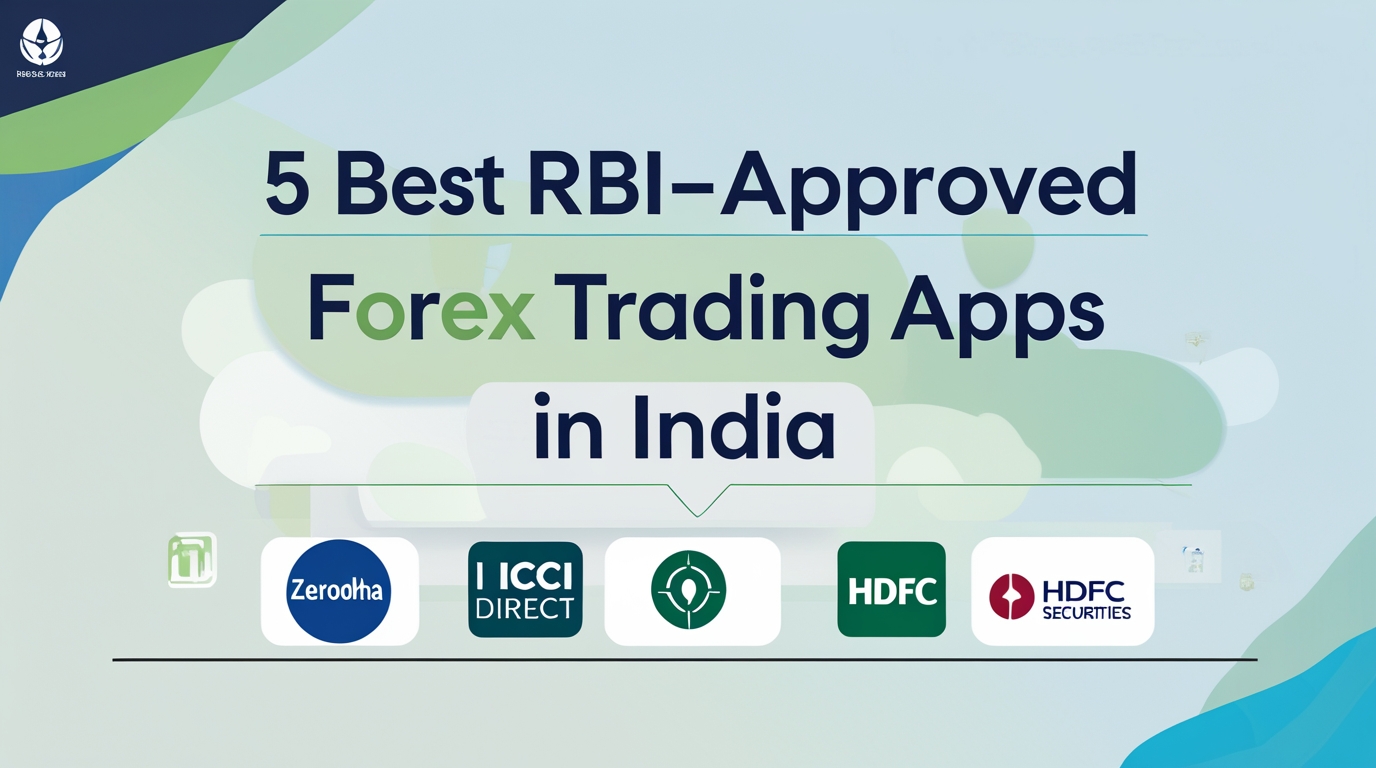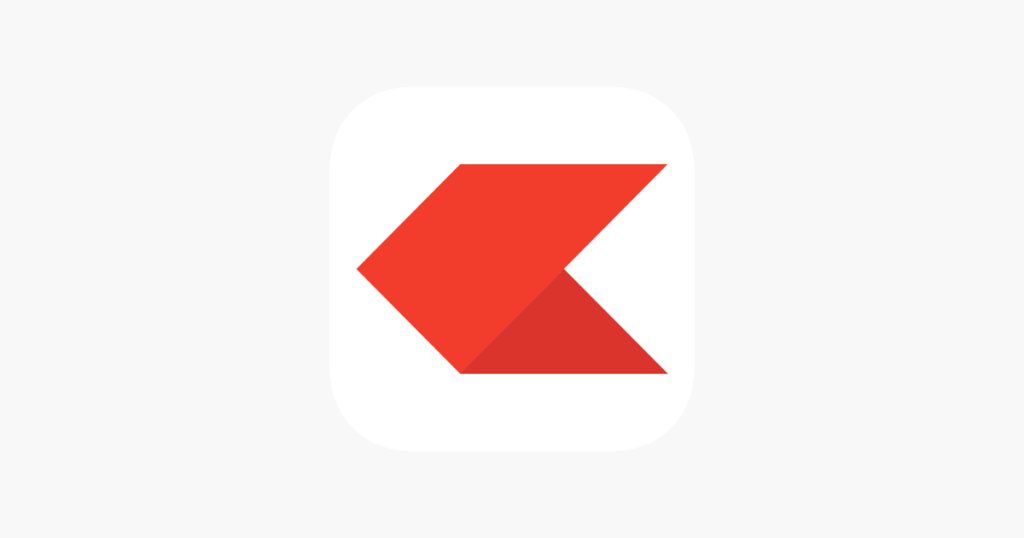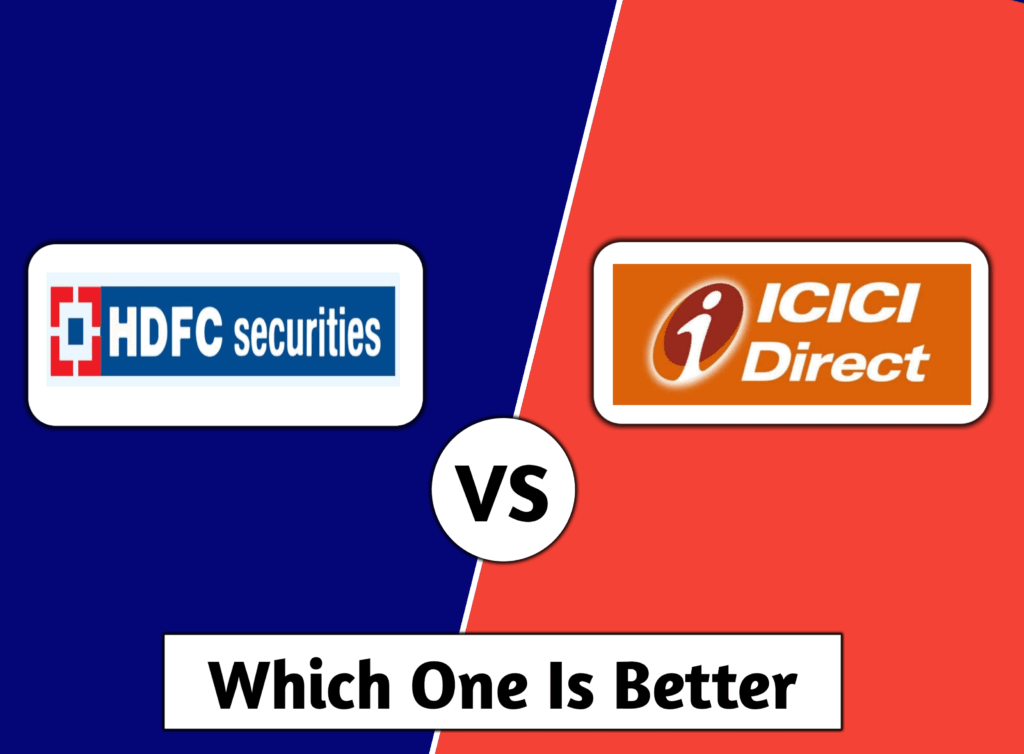
In India’s tightly regulated forex market, finding a truly RBI-approved forex trading app is crucial for both legality and safety. The Reserve Bank of India (RBI) and SEBI mandate that individuals trade foreign exchange only through authorized channels – notably currency derivatives on Indian exchanges or RBI-authorized platforms. Any platform operating outside this framework is deemed illegal, and users risk penalties under FEMA. This report examines leading forex trading apps in India that comply with RBI rules and the Liberalised Remittance Scheme (LRS), focusing solely on mobile platforms. Key factors evaluated include regulatory compliance (RBI approval & LRS adherence), usability, fees, provider credibility, feature set (real-time data, multi-currency support, education), and mobile customer support. We also incorporate expert commentary from industry veterans to underscore the importance of sticking to authorized apps.
Mobile trading apps (example interface) provide real-time forex quotes, but RBI rules limit Indians to regulated platforms.
Comparing Key Features and Fees
To summarize the comparison of these top LRS forex platforms (mobile apps operating under RBI’s LRS guidelines and FEMA compliance), see the table below:
| Trading App (Broker) | RBI/SEBI Compliance | Usability & UI | Brokerage Fees (Forex) | Regulatory Tie-ups | Notable Features | Customer Support |
| Zerodha Kite (Zerodha) | Yes (SEBI reg.; NSE/BSE member) | Extremely intuitive, fast; modern charts | ₹20 or 0.03% per order (flat) | – (Domestic only; no foreign partner needed) | TradingView charts; GTT orders; Varsity education (external) | Ticket & phone support (business hours); online knowledge base. |
| Upstox Pro (RKSV) | Yes (SEBI reg.; NSE/BSE member) | Clean UI, easy navigation; very stable; TradingView charts | Up to ₹20 per order (flat) | – (Domestic only; no foreign partner) | Advanced charting; one-click options chain; price alerts | In-app chat/ticket; phone support in trading hours (some wait). |
| Angel One (Angel Broking) | Yes (SEBI reg.; NSE/BSE member) | User-friendly; hybrid model with research integration | ₹20 per order flat (after promo) | Yes – tie-up for US stocks via regulated US broker (LRS) | Smart order types; integrated research tips; multi-asset view | 24×7 helpline; local branches; relationship managers available. |
| ICICI Direct Markets | Yes (Bank AD-I; SEBI reg.) | Good, but heavier interface; rich features & reports | ~0.04% of turnover; min ~₹20 (higher for small trades) | Yes – partner for global investing (US broker) | In-depth research & advisories; seamless bank account integration | Dedicated customer service, RMs; high-quality support. |
| HDFC Securities App | Yes (Bank AD-I; SEBI reg.) | Reliable, slightly dated UI; continuous improvements | ₹23 per lot (carry forward); ₹12 per lot per side intraday | Yes – (separate outward remittance for global products) | Strong research, news alerts; forex insights for hedging | 24/7 customer care via bank; branch network; very responsive. |
Table: Comparison of RBI-Approved Mobile Forex Apps in India – All listed apps comply with RBI regulations and permit only legal forex trading (INR pairs on recognized exchanges). Fees are as of 2025; lower is better for active traders. “Regulatory tie-ups” indicates if the provider enables any LRS-based international investing via regulated partners (not applicable for pure currency derivative trading, but relevant for overall service credibility).
Regulatory Framework: RBI Approval and LRS Compliance
RBI Rules & LRS: Forex trading by Indian residents is legal only under strict conditions. The RBI explicitly states that “resident persons can undertake forex transactions only with authorised persons and for permitted purposes”. Trading on overseas or unregulated apps (especially those offering margin on cross-currency pairs) is prohibited. In fact, remitting funds abroad under the LRS for margin-based forex trading is not allowed – RBI’s guidelines clarify that remittances under LRS cannot be used for margin or speculative forex trading overseas. This means the typical international forex brokers offering leveraged trading in pairs like EUR/USD or GBP/JPY are off-limits to Indian retail traders. Legal forex trading in India happens via currency futures and options on recognized exchanges (NSE, BSE, etc.), in currency pairs approved by RBI.
Permitted Currency Pairs: RBI currently permits trading only in a handful of pairs involving the INR. These include USD/INR, EUR/INR, GBP/INR, and JPY/INR. In recent years, Indian exchanges have also introduced a few cross-currency futures (such as EUR/USD, GBP/USD, and USD/JPY) for trading and hedging. All such trades are settled in INR on domestic exchanges, ensuring they fall under Indian jurisdiction. Any app offering other exotic pairs or direct spot forex trading with leverage is not RBI-approved.
Why RBI/Sebi Authorization Matters: Using an RBI-approved forex trading app isn’t just about following the law—it directly impacts the safety of your funds. Authorized apps are backed by regulated brokers where customer money is handled through Indian banks, and trades are protected under Indian law. Unregulated platforms, by contrast, often operate from foreign jurisdictions, and users have no legal recourse in India if things go wrong. As Nithin Kamath (CEO of Zerodha) cautioned, “illegal CFD & forex trading platforms” lure people via ads and can lead to heavy losses. RBI Governor Shaktikanta Das similarly warned that banks still see “certain persons… fund activities on unauthorized FX trading platforms”, calling for “enhanced vigilance”. In short, sticking to RBI-authorized apps is the only safe and legal path for Indian forex traders. Studies show that 70–80% of retail traders lose money in forex trading, so using a trusted, regulated platform is essential to avoid compounding those risks with legal troubles.
Top RBI-Approved Forex Trading Apps in India
In light of the above, the forex trading apps in India that merit consideration are those offered by SEBI-registered brokers and banks. These mobile apps allow trading of currency derivatives on Indian exchanges (fully compliant with RBI and LRS rules). Below, we compare the leading apps on usability, fees, credibility, features, and support:
Zerodha Kite 🇮🇳
Regulatory Status: Zerodha is a SEBI-registered broker (NSE member) and thus fully compliant with RBI regulations for currency trading. All trades are routed through recognized exchanges; no LRS remittance is needed for forex F&O trades.

Usability: Zerodha’s Kite app is renowned for its clean, intuitive design and lightning-fast performance. It integrates advanced charting (TradingView charts with 100+ indicators) seamlessly into the mobile interface. Navigation is straightforward – even first-time users find it easy to search for currency contracts, place orders, and manage their portfolio. The app’s lightweight, clutter-free UI minimizes errors and is highly stable, even during volatile market hours. Onboarding is fully digital and quick – PAN and Aadhaar-based KYC allow account opening within a day.
Fees: Zerodha pioneered the discount brokerage model in India. It charges a flat ₹20 per executed order (or 0.03%, whichever is lower) for all F&O trades, including currency futures/options. There are no monthly fees for the trading account, and no brokerage on equity delivery if you also invest in stocks. For forex traders, this low, fixed fee is extremely competitive – whether you trade 1 lot or 100 lots in an order, you pay at most ₹20. Statutory exchange charges and GST are passed through at cost (standard across brokers). In contrast, traditional brokers often charged per-lot fees or higher percentages, so Kite offers one of the lowest transaction cost structures in the market.
Credibility & Partnerships: Zerodha is India’s largest retail broker by active clients, known for its transparency and financial strength (profitability and zero-debt model). While it doesn’t need foreign partnerships for forex (since trading is domestic), its robust in-house technology and compliance track record give it a strong reputation. It’s a member of all major exchanges and offers investor protection via SEBI’s prescribed mechanisms. As an RBI-authorized platform user, you can be confident that trades and funds are handled as per Indian regulations.
Features: Kite provides streaming real-time forex data (live quotes for USDINR, EURINR, etc.) with market depth. It supports advanced order types like GTT (Good-Till-Triggered) for strategic entries/exits, and cover orders for risk management. Charting on mobile is industry-leading, with options for technical drawings and multi-timeframe analysis – a big plus for serious traders. While Zerodha is primarily an execution-only platform (it does not give buy/sell “calls”), it compensates by offering extensive educational resources externally. For example, Zerodha’s Varsity (available via web/app) is a free learning module covering forex, stocks, and technical analysis, which is widely used by Indian traders. This aligns with RBI’s emphasis on informed trading, as the app encourages users to educate themselves rather than indulge in reckless speculation.
Customer Support: Zerodha offers in-app query resolution via ticketing and email support, and phone support for urgent issues during trading hours. While support is not 24×7 (markets are daytime), they have a reputation for prompt responses on weekdays. The app also has a detailed knowledge base for self-help. Users have noted that during peak periods response can be slightly delayed, but overall support quality is solid. (One trade-off of the low-cost model is that Zerodha doesn’t assign personal relationship managers, unlike some bank brokers.) Still, for most tech-savvy users the combination of helpdesk and extensive self-serve resources proves sufficient.
Upstox Pro
Regulatory Status: Upstox (RKSV Securities) is another SEBI-registered broker offering currency trading on NSE/BSE. It adheres to all RBI and exchange rules. No unauthorized products are offered – only INR-based pairs and approved cross-currency futures are available, making it a legally compliant forex platform for Indian users.

Usability: The Upstox Pro mobile app is often praised for its modern, user-friendly interface. It provides a slick experience with easy navigation tabs for different asset classes (you can toggle to the currency segment effortlessly). Like Kite, Upstox integrates TradingView charts, giving traders access to advanced technical analysis tools on mobile. Order placement is intuitive – you can execute trades in a few taps, and there are features like an options chain view for currency options. Onboarding is fully digital and quick, leveraging eKYC. Overall, Upstox Pro’s UI is clean and fast, making it suitable for both beginners and experienced traders. Some users have reported occasional minor glitches at peak volatility, but these instances are infrequent and usually resolved in updates.
Fees: Upstox follows the discount brokerage model as well, with brokerage capped at ₹20 per order for currency trades. In practice, Upstox also often runs promotions (such as zero brokerage for first 30 days or reduced pricing in certain plans), but standard charges remain a low flat ₹20. There are no volume-based or turnover-based charges beyond the exchange fees. This flat fee model keeps trading costs predictable and is among the lowest in the industry (for comparison, even some bank brokers now charge ₹20–₹25 per contract or order, often making Upstox equally or more affordable). Transaction charges, stamp duty, and taxes are at actuals, similar to others. Upstox’s competitive pricing ensures active forex traders can execute high-frequency strategies without prohibitive costs.
Credibility & Backing: Upstox has garnered trust by securing investments from renowned figures (it’s backed by the likes of Ratan Tata and Tiger Global). While relatively newer (est. 2011) than some bank-based brokers, it is a regulated entity under SEBI and has grown to millions of customers. The broker provides a robust trading ecosystem and is known to comply strictly with exchange norms – for example, it does not allow any off-market transfers for margin that violate LRS, and uses only Indian banking channels (no crypto or e-wallet funding, which is a red flag per RBI). Upstox does not have a direct foreign partner for forex – because all trading is done on Indian exchanges – but its strong domestic compliance and funding from reputed investors add to its credibility.
Features: Upstox Pro offers real-time market data with fast order execution. It supports multi-currency watchlists (within the allowed pairs) so you can monitor USD/INR, EUR/USD, etc., on one screen. Charting features mirror those of Zerodha’s – advanced indicators and drawing tools via TradingView integration. Unique features include an Options Strategy builder (useful for currency options traders) and one-click filter to see the option chain of a currency pair. Upstox also provides some basic educational content through its Learn section and blog, plus webinars on trading strategies. While not as extensive as Zerodha’s Varsity, these resources help new traders understand forex market dynamics and responsible trading. The app’s alert features (price alerts notifications) also help users stay updated on currency movements without constant monitoring.
Customer Support: Upstox offers support through in-app chat and email, and a phone helpline during trading hours. The interface has a help section where users can raise tickets. The support quality is generally good, though some customers have noted longer wait times during high activity periods. Upstox has been expanding its support team to address the growing user base. They also have an extensive FAQ and knowledge base online. For mobile users, the app’s chat support (when live agents are available) is convenient. They do not provide dedicated relationship managers for each client (typical for discount brokers), but for urgent queries the phone line is available. Overall, support is adequate, though there is room for improvement in response speed per some user feedback.
Angel One
Regulatory Status: Angel One (formerly Angel Broking) is a long-established SEBI-registered broker and an RBI-authorized dealer for forex derivatives. It operates under full compliance, offering only exchange-traded currency futures & options. Angel has also expanded into facilitating LRS-compliant investments (like U.S. stocks) via partners, but for forex trading it sticks to RBI’s permissible route. All currency trades are executed on NSE/BSE exchange contracts, ensuring legal adherence.

Usability: The Angel One mobile app has evolved significantly, marrying the broker’s traditional experience with a new fintech-oriented design. The app is user-friendly, though not as minimalist as Kite or Upstox. It features a straightforward interface where users can easily switch between equity, commodity, and currency segments. Angel One integrates third-party charting tools (including TradingView charts) for technical analysis similar to its peers. One standout is Angel’s inclusion of guided trading features – for instance, SmartOrders like bracket orders (one-click setting of target and stop-loss) and advisory snippets for those who want some broker research input. The onboarding process with Angel is also digital now, although because of its full-service legacy, some clients still opt for assisted account opening at branches. In-app navigation is decent, and continuous improvements are being made to modernize the UI. If you prefer a blend of DIY and broker guidance, Angel’s app strikes a balance: it’s intuitive enough for self-directed traders but also provides access to broker research and tips in-app.
Fees: Angel One has transitioned to a flat-fee brokerage model as well. After an initial promo period (they often give zero brokerage for first 30 days up to a certain amount), the standard charge is ₹20 per executed order for all F&O trades (including currency F&O). This is comparable to Zerodha/Upstox pricing. Where Angel differentiates a bit is offering occasional lower-percent brokerage for small trades (e.g. 0.03% if that is less than ₹20), but practically most trades hit the ₹20 cap. There is also a minimum ₹2 on orders, but that comes into play only for extremely low-value contracts. Angel One thus is highly competitive on fees, shedding its old image of a high-brokerage full-service broker. Apart from brokerage, standard exchange charges and taxes apply. Angel does not charge any platform fee; however, if you opt into certain value-added services (like Angel’s advisory subscriptions or SMS tips), those might have separate costs. For pure trading, you can enjoy the low flat brokerage which makes frequent trading viable.
Credibility & Strength: Angel One is one of India’s oldest brokerage houses (since 1987) and has a strong reputation and large client base. It’s a publicly listed company, adding to transparency. In terms of regulatory credibility, Angel is known for robust compliance – it strictly offers only RBI-allowed products. Notably, Angel One has tie-ups for global investing with a FINRA-regulated U.S. partner for stocks (under LRS), showing it takes the regulated route when giving clients foreign market access. This indicates a commitment to working only with regulated foreign partners when venturing outside India, aligning with RBI’s LRS framework. Users’ funds and margins are held with approved banks; Angel being an established player means it has sound risk management (important for derivative trading). Overall, the broker’s credibility is very high, and it is often trusted by those who value a long track record.
Features: Angel One’s app offers a rich feature set. In addition to core trading, it provides research reports, trading ideas, and news updates within the app – a legacy of its full-service model. This can benefit traders who want access to expert analysis or trading calls on currencies. Angel also supports multi-asset portfolios, so you can see your currency positions alongside equities, mutual funds, etc., which is useful for holistic portfolio tracking. For forex specifically, the app gives real-time quotes and charts, and allows trading in all four INR pairs and the cross-currency contracts available on the exchange. Angel’s “ARQ” advisory is an AI-driven tool that sometimes flags opportunities (though it’s more equity-focused). Educationally, Angel has a blog and tutorial section on their website about forex basics, which newbies can refer to; the mobile app links out to some of these resources. In terms of multi-currency support, since all trades are INR-denominated, the app doesn’t provide, say, a USD wallet – however, if you use Angel for U.S. stock investing under LRS, the same app manages your USD funds and international portfolio too. So it offers a one-stop solution for both domestic forex trading and overseas investing (with proper LRS compliance) – giving it a versatility edge.
Customer Support: Being a hybrid broker, Angel One excels in customer service. They offer 24×7 phone support for basic queries and chat support via the app/website. Notably, Angel maintains a large network of branches and sub-brokers across India – so customers who prefer in-person service or extra hand-holding have that option (unique among the “top apps” which are mostly discount brokers). On mobile, you can use the help section to request callbacks or query the chatbot. Angel assigns relationship managers to larger clients, but even retail traders can call the helpline for prompt assistance. This strong support infrastructure is a big plus for new traders who might have many questions about margin, settlement, or app features. Angel’s support is considered one of the most accessible, though during peak hours you may still occasionally face short wait times on calls. Overall, for an app user, knowing you can quickly speak to a representative if something goes wrong is reassuring.
ICICI Direct & HDFC Securities (Bank Brokers)
(Honorable mentions – strong on credibility, moderate on cost and tech)

These apps are the trading platforms of major banks (ICICI and HDFC), included here for their RBI compliance and trust factor:
- ICICI Direct: Backed by ICICI Bank, it is an RBI-authorized platform allowing currency derivative trading. The ICICI Direct Markets mobile app provides a one-stop interface to trade currencies along with stocks and other assets. Usability has improved over years, though it’s slightly more complex than ultra-simple apps like Kite. ICICI’s strength is in research and advisory – the app offers detailed forex reports and trading strategies by in-house experts. It also has tie-ups enabling international investing under LRS (for stocks/ETFs via a U.S. brokerage partnership), reflecting a commitment to regulated foreign access. Fees: ICICI uses a percentage brokerage model (around 0.04% for currency futures) or package plans, which can result in higher costs for small trades. They often have a minimum per order (e.g. ₹20) as well. Thus, active traders might find it pricier than discount brokers. However, ICICI Direct’s credibility is unquestionable – funds are very secure, and it being a bank-broker means seamless banking integration (useful for transfers). Support: ICICI offers excellent customer support including relationship managers, priority helplines for brokerage customers, and even branch support. For users who prioritize trust and full-service features (and don’t mind a slightly higher cost), ICICI Direct’s app is a top choice. It is fully compliant with RBI rules (only INR pairs and approved products).
- HDFC Securities: Similarly, HDFC Sec (from HDFC Bank) has a robust mobile app HDFC Securities Trading that supports currency F&O trading. Credibility & Compliance: It’s a Category-I Authorized Dealer and SEBI broker, so all trades are legal and regulated. Usability: The app is reliable, though the interface is a bit dated compared to newer apps. HDFC has been updating it, and it offers features like customizable watchlists and standard charts. Fees: HDFC Securities typically charges about ₹23 per contract for carry-forward currency trades and ₹12 per lot per side for intraday trades. This effectively could be ~₹24 round-trip per lot, higher than the flat ₹20 per order of discount brokers (which covers any number of lots). So, cost is a consideration. Features: HDFC Securities app provides rich market research, real-time news, and even a dedicated Forex section with insights for hedgers and traders. It does not offer direct overseas trading in-app (they have separate services), focusing the app purely on domestic market instruments. Support: Being bank-backed, HDFC secures strong customer service – 24/7 phone banking support for trading issues, RM assistance, and an active support team for the app. The trust in the HDFC brand is a big draw for conservative traders. While the UI/UX may not be as sleek, many users value the sense of security using a bank’s trading app. All transactions go through your linked HDFC Bank account, ensuring smooth LRS reporting if applicable and easy fund management.
Expert Insights on Regulated Forex Trading
Industry experts unanimously stress that traders should avoid unregulated “quick profit” forex schemes and stick to platforms vetted by regulators. RBI’s alert lists now name dozens of unauthorized platforms (OctaFX, Olymp Trade, Binomo, etc.) – these may advertise heavily, but using them can lead to legal trouble and financial loss. As RBI Governor Shaktikanta Das highlighted, banks must be vigilant against facilitating such platforms and users can face penalties for violating FEMA rules. In the words of Zerodha’s CEO Nithin Kamath: “People still [keep] seeing those [illegal forex] ads, which means [they’re] still losing money… RBI’s press release will hopefully put an end to these platforms.” This expert commentary underlines that no matter how attractive an unlicensed app’s promises are, traders are far better off with the legitimate, RBI-approved forex apps we’ve discussed.
Furthermore, financial planners advise examining the total cost and support offered by a platform. A marginally higher fee might be worth paying to a broker that provides responsive customer service and educational help, especially for beginners (forex being a complex, risky market). The consensus recommendation is that apps like Zerodha Kite or Upstox Pro are excellent for tech-savvy traders focused on low costs and high-performance tools. On the other hand, those who want guidance and full-service features might lean towards Angel One or bank-based apps, accepting a possibly higher cost for more hand-holding. In all cases, the paramount concern is that the app is RBI-authorized, uses proper LRS channels for any overseas transfers, and trades only permissible instruments.
Conclusion: Choosing the Best RBI-Approved Forex App
After evaluating the field, Zerodha Kite emerges as the best RBI-approved forex trading app in India for most retail traders. It offers an ideal mix of rock-bottom fees, an intuitive yet powerful mobile interface, and the backing of India’s leading broker – all while strictly adhering to RBI’s regulatory framework (no off-platform gimmicks). Zerodha’s focus on technology and compliance means traders can operate efficiently and legally, with features like advanced charts and GTT orders enhancing the experience. Upstox Pro is a very close second, matching Zerodha on cost and adding its own user-friendly flair, so the choice between the two may come down to personal preference in interface. For users who value extensive research and customer support, Angel One is a strong contender, bridging the gap between discount and full-service by providing advisory features without compromising on compliance or significantly raising fees.
In summary, the “best” app is one that meets all six criteria: RBI/LRS compliance, easy usability, low fees, strong regulation credibility, rich features, and responsive support. Each app discussed ticks these boxes to varying extents, but all of them keep you within the legal forex trading ambit. As a trader, your priority must be to operate within the RBI-SEBI framework. This not only keeps you on the right side of the law but also protects you from the rampant frauds on illegal platforms. By choosing a registered broker’s mobile app, you ensure that your trades are transparently executed on exchange (no hidden dealing desk), your funds are held in secure accounts, and you have recourse mechanisms if any dispute arises.
Pro Tip: Before you start trading currencies, take advantage of the educational materials and demo accounts offered by these brokers. Build your knowledge and strategy on virtual platforms or small trades. Remember that forex markets can be highly volatile – proper risk management is key. An RBI-approved app will give you the tools to set stop-loss orders, access research, and even practice with simulators, so use those features to your benefit.
Ultimately, the Indian forex trading landscape is evolving under cautious regulatory eyes. By sticking with the best RBI-approved forex trading apps in India – such as the ones reviewed here – you can trade confidently, knowing your app is operating by the book. This allows you to focus on developing your trading skills and strategies, rather than worrying about legal uncertainties or safety of your funds. Happy (and responsible) trading!
[YMYL Notice: Forex trading involves significant risk. Ensure you understand the risks and never trade with money you cannot afford to lose. All information above is for educational purposes, backed by credible sources and current as of 2025. Always verify the latest regulations and consult a certified financial advisor if in doubt.]
FAQs
Is forex trading legal in India under the LRS?
Forex trading is legal in India only through RBI-approved channels. Under the Liberalised Remittance Scheme (LRS), you cannot send money abroad for margin or speculative forex trading. The only legal way for individuals to trade forex is via currency futures and options on Indian exchanges (NSE, BSE, etc.) using INR-based pairs. In other words, you must use a SEBI-registered broker/platform that routes trades through authorized exchanges or Electronic Trading Platforms. Any app offering direct offshore forex trading (like EUR/USD spot trading on leverage) to Indians is not permitted by RBI. Always confirm that your chosen platform is RBI-authorized and only offers products allowed by FEMA regulations.
Which currency pairs can I trade on RBI-approved forex apps?
RBI-approved forex brokers in India are limited to certain currency pairs. These include four major INR pairs – USD/INR, EUR/INR, GBP/INR, and JPY/INR – which trade as futures and options on Indian exchanges. Additionally, since 2018, Indian exchanges offer a few cross-currency futures (without INR) such as EUR/USD, GBP/USD, and USD/JPY; these are also legal and available on authorized apps. Apart from these, no other pairs (like AUD/USD, USD/CAD, etc.) are allowed for residents unless they are for genuine hedging through banks. If an app shows you dozens of global FX pairs for speculative trading, it is a red flag that the platform is not RBI-approved. Stick to the above permitted pairs on regulated apps to ensure you remain compliant.
What are the typical fees on a mobile forex trading app in India?
Most Indian forex trading apps (offered by discount brokers) charge flat low brokerage fees. The standard is around ₹20 per executed order for currency futures or options. This flat fee covers any lot size, making it cost-effective. Some brokers might charge a percentage (0.03%–0.05%) if that comes out lower than ₹20 for very small trades. Apart from brokerage, you will pay exchange transaction charges (negligible, e.g. ₹1.7 per lakh on NSE futures) and statutory levies like GST and stamp duty. Traditional full-service brokers (especially bank-linked ones) may charge per contract or a higher percentage, which can be more expensive – e.g. ₹20+ per lot or 0.04% of turnover. There are generally no platform fees for using the mobile app itself. Always review the broker’s fee schedule: discount brokers like Zerodha, Upstox, Angel One have the lowest trading fees, whereas bank brokers like ICICI or HDFC might cost slightly more per trade in exchange for added services.
How can I verify if a forex trading app is RBI-approved?
To verify an app’s legitimacy, check for two key things: SEBI registration and RBI authorization status. All RBI-approved forex brokers will be registered with SEBI as stock/commodity brokers – you can find the broker’s SEBI registration number on their website and cross-check it on SEBI’s official site. Additionally, RBI maintains an “Alert List” of unauthorized platforms – ensure the app you are evaluating is not listed there. An entity not on the alert list is not automatically authorized, but it is a starting point. The safest route is to use known brokers: if the app is offered by a well-known Indian brokerage (like the ones discussed above), it is generally compliant. You can also refer to RBI’s list of authorized persons and authorized ETPs (Electronic Trading Platforms) on the RBI website. Lastly, note the products offered – a true RBI-approved app will only offer INR-based pairs or legally allowed products, and will never ask you to fund via unofficial channels (crypto, Paypal, etc. are a red flag). When in doubt, contact the broker and ask for clarification of their regulatory status; reputable ones will be transparent.

















